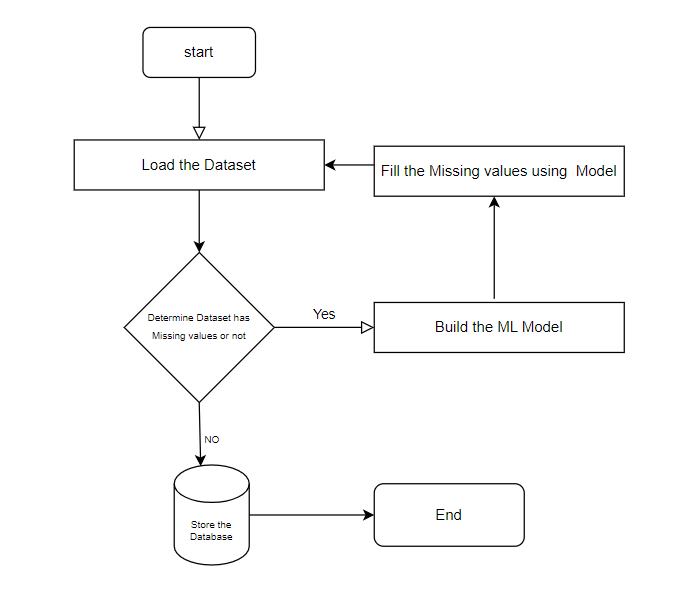Crime Prediction and Analysis against women Using LRSRI-Missing Value Imputation and FIPSO - Optimum Feature Selection Methods
Main Article Content
Abstract
Data investigation is the method of considering crude measurements in arrange to draw conclusions around them. Many statistics evaluation techniques and tendencies had been automated into mechanical techniques and algorithms in such a manner that they provided raw statistics for human consumption. Machine learning could be a portion of artificial intelligence that permits computer frameworks to "analyze" their own statistics and improve them over time without being explicitly programmed. Machine learning algorithms can understand patterns in statistics and analyze them to make their own predictions. Lost esteem ascription is one of the foremost vital procedures in data pre-processing and it is additionally the most prepare of information examination. Ascription of lost information for a variable replaces lost information with a esteem inferred from an assess of the dispersion of that variable. Basic accusation employments as it were one suspicion. Numerous ascriptions employments diverse gauges to reflect the instability in evaluating this dispersion. In this article, The proposed method LRSRI used for impute the missing values on Crime against Women Data-set(CAW).The Linear Regression Imputation and Stochastic regression imputations are used in this method.Feature selection is another important data preprocessing techniques.This is often called attribute selection or feature selection. The most important problem in predictive modeling is the mechanical selection of features in the data. In this work,the proposed method FIPSO implemented for feature selection.This is feature importance and Particle Swarm Optimization based method.The main objective of this work is predict the crime rate against women in India based on 2001 to 2021 crime recorded against women in India.This Data set is collected from Data.gov.in.Finally The predicted result is compared with recent NCRB crime report.The proposed method LRSRI and FIPSO has given 98.34% accuracy of crime prediction.In feature,This outcome will be valuable for the crime office to control the CAW in India.
Article Details
References
Karmitsa, Napsu; Taheri, Sona; Bagirov, Adil; Makinen, Pauliina (2020). Missing Value Imputation via Clusterwise Linear Regression. IEEE Transactions on Knowledge and Data Engineering,(),1–1 doi:10.1109/TKDE.2020.3001694
Ali, Azza & Abuelkheir, Mervat & Atwan, Ahmed & Elmogy, Mohammed. (2022). Missing Values Imputation Using Fuzzy K-Top Matching Value. Journal of King Saud University - Computer and Information Sciences. 35. 10.1016/j.jksuci.2022.12.011.
Nadimi-Shahraki MH, Mohammadi S, Zamani H, Gandomi M, Gandomi AH. A Hybrid Imputation Method for Multi-Pattern Missing Data: A Case Study on Type II Diabetes Diagnosis. Electronics. 2021; 10(24):3167. https://doi.org/10.3390/electronics10243167
Rahin Atiq, Farzana Fariha,Mutasim Mahmud and Sadman S. Yeamin,Kawser I. Rushee1 and Shamsur Rahim,”A Comparison of Missing Value Imputation Techniques on Coupon Acceptance Prediction”,I.J. Information Technology and Computer Science, October 8, 2022 ,PP-15-25,DOI: 10.5815/ijitcs.2022.05.02
Amelia Ritahani Ismail , Nadzurah Zainal Abidin , Mhd Khaled Maen, “Systematic Review on Missing Data Imputation Techniques with Machine Learning Algorithms for Healthcare”, Journal of Robotics and Control,Volume 3, Issue 2, March 2022 ISSN: 2715-5072 DOI: 10.18196/jrc.v3i2.13133
Muhammad Metwally Seliem “HandlingOutlierData as Missing Values by Imputation Methods: Application of Machine Learning Algorithms”, Turkish journal of Computer and mathematics Education”,Vol 13,No 1,2022,PP- 273-286
Saba Bashir, Irfan Ullah Khattak, Aihab Khan, Farhan Hassan Khan, Abdullah Gani, Muhammad Shiraz, "A Novel Feature Selection Method for Classification of Medical Data Using Filters, Wrappers, and Embedded Approaches", Complexity, vol. 2022, Article ID 8190814, 12 pages,2022. https://doi.org/10.1155/2022/8190814
Kaushalya Dissanayake, Md Gapar Md Johar, "Comparative Study on Heart Disease Prediction Using Feature Selection Techniques on Classification Algorithms", Applied Computational Intelligence and Soft Computing, vol. 2021, Article ID 5581806, 17 pages, 2021. https://doi.org/10.1155/2021/5581806
Tarneem Elemam, Mohamed Elshrkawey, "A Highly Discriminative Hybrid Feature Selection Algorithm for Cancer Diagnosis", The Scientific World Journal, vol. 2022, Article ID 1056490, 15 pages, 2022. https://doi.org/10.1155/2022/1056490
NamJung Kim,KyongMin Min,”Optimal machine learning feature selection for assessing the mechanical properties of a zeolite framework”,Physical Chemistry Chemical Physics,Issue 44, 2022

